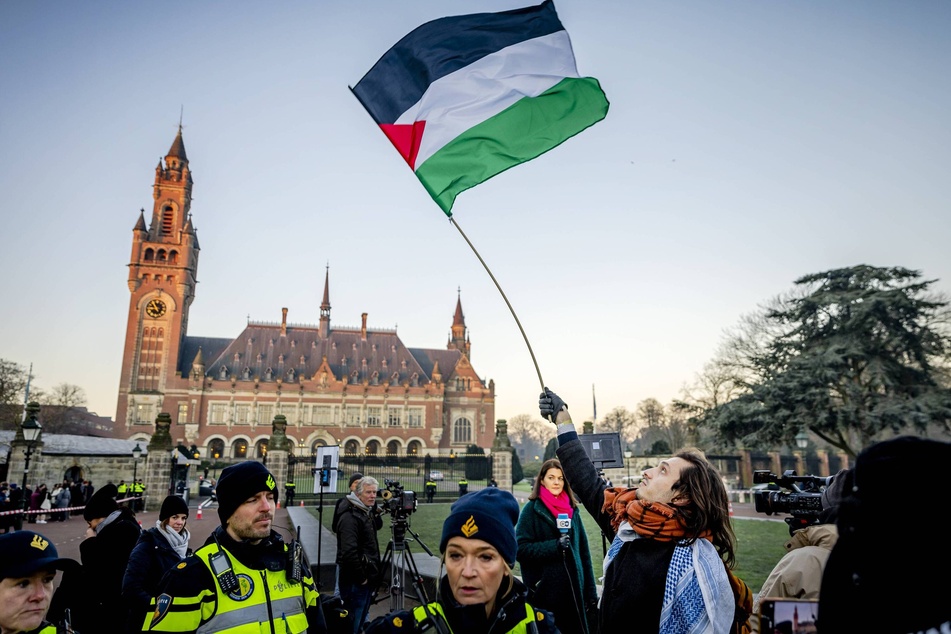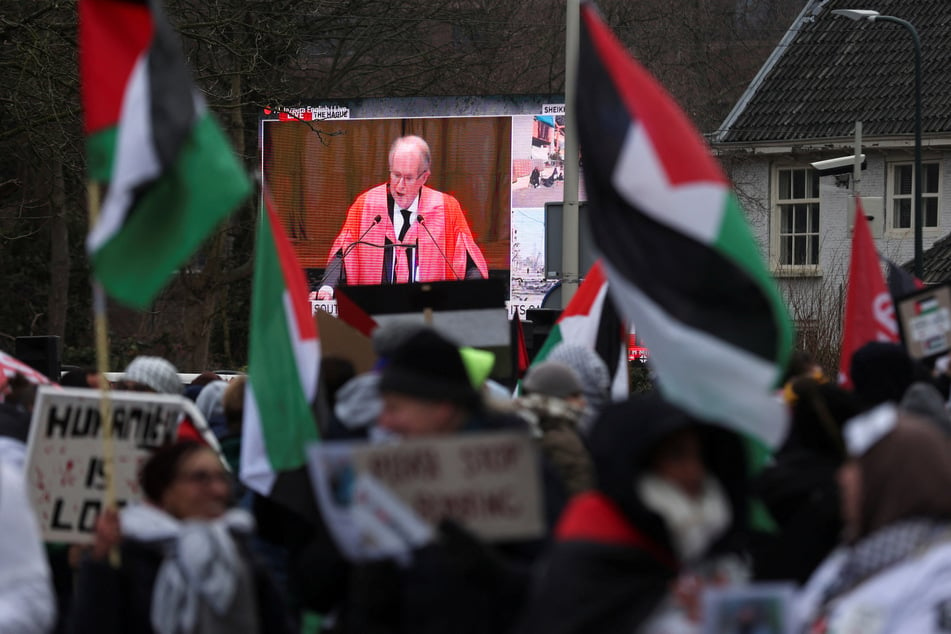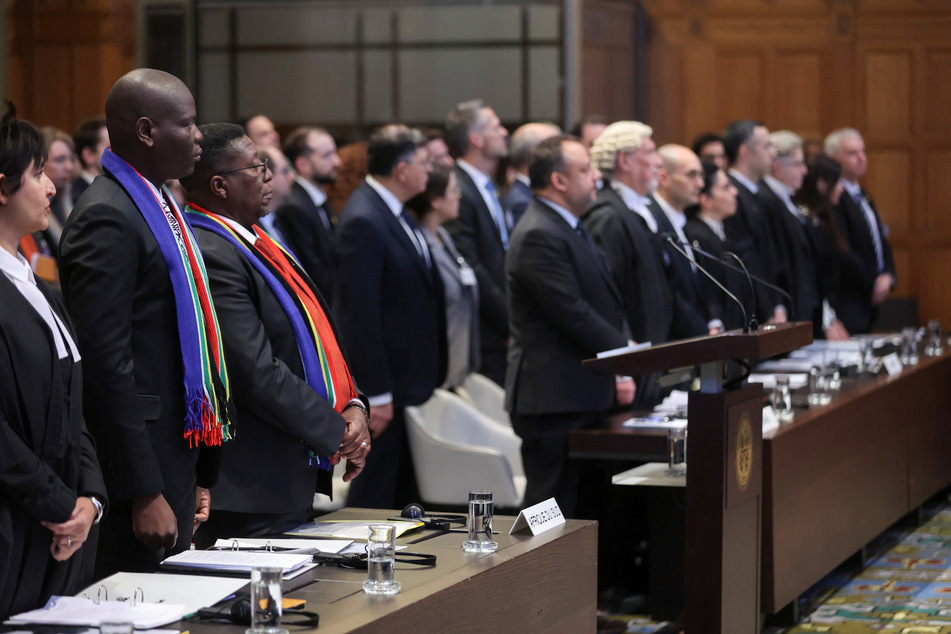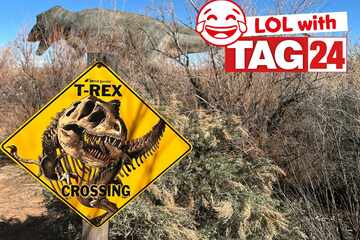South Africa presents devastating genocide case against Israel at ICJ
The Hague, Netherlands - In a historic session at the International Court of Justice at The Hague, South Africa on Thursday presented its genocide case against Israel and its conduct in the war on Gaza.

Over three hours of powerful oral arguments, South Africa's representatives made their case for the UN judicial body to take emergency "provisional measures" to protect Palestinians from the risk of genocide.
Laying out the broader context of the Israeli-Palestinian conflict and a forensic accounting of the events since the October 7 Hamas attack on Israel, it presented evidence that people in Gaza are being intentionally subjected to actions and conditions aimed at their destruction – in whole or in part – as a "national, racial, and ethnical group."
"Genocides are never declared in advance, but this court has the benefit of the past 13 weeks of evidence that shows incontrovertibly a pattern of conduct and related intention that justifies a plausible claim of genocidal acts," Senior Counsel Adila Hassim argued.
South Africa is asking the ICJ to issue a ruling ordering Israel to immediately cease all military activities in Gaza, restore access to basic human needs to the people of Gaza, and conserve evidence crucial to the wider case.
It pointed to established precedents where the court ruled in favor of provisional measures, the most recent of which is the case of Russia's invasion of Ukraine.
South Africa's latest show of solidarity with Palestinians

For only the second time in the ICJ's existence, a state is accusing another of breaching the 1948 Genocide Convention despite not being directly affected by the conflict under consideration.
This makes the case a hugely significant legal and political milestone, which also has the support of 13 other countries, as well as over 900 organizations, unions, and political movements from around the world.
Among them is Defense for Children International, a plaintiff in a genocide case brought by human rights groups and Palestinians against the Biden administration and its unwavering support for Israel's war.
South Africa has longstanding ties of solidarity with the Palestinian people, illustrated by a Nelson Mandela quote cited in Justice Minister Ronald Lamola's address Thursday: "In extending our hands across the miles to the people of Palestine, we do so in full knowledge that we're part of a humanity that is at one."
Lamola also acknowledged early on the horrors of October 7.
"That said," he insisted, "no armed attack on a state territory, no matter how serious – even an attack involving atrocity crimes – can provide any justification for or defense to breaches of the [Genocide] convention."
"Genocidal speech" by Israeli officials under spotlight

It fell to Hassim to present a "systematic pattern of conduct from which genocide can be inferred."
From the mass killing of Palestinians – the death toll in Gaza has passed 23,000, a likely undercount in which over 70% are women and children – to the deliberate creation of conditions that cannot sustain life, Hassim charged Israel with breaching multiple articles of the Genocide Convention.
Senior Counsel Tembeka Ngcukaitobi followed up with a litany of public statements by Israeli government official, military leader, and lawmakers, all of which were meant to establish clear genocidal intent in Israel's actions.
Particular attention was given to Prime Minister Benjamin Netanyahu's shocking October 28 speech, in which he urged Israeli troops to "remember what Amalek has done to you." Ngcukaitobi provided evidence that this reference to the Biblical command to wipe out an entire tribe – women, children, and livestock included – had become something of a motto for IDF soldiers, some of whom filmed themselves dancing and singing about the complete destruction of Gaza.
Preempting a reported Israeli defense, the South African legal scholar argued that calls for wiping out Gaza from such powerful figures has a direct impact on government and military policy.
"The distinctive feature of this case has not been the silence as such, but the reiteration and repetition of genocidal speech throughout every sphere of state in Israel," he said.
What's next?
With South Africa's oral statements concluded, Israel will respond on Friday in a presentation that is expected to center the Hamas attacks, while also denying that the case has any legal standing and that it constitutes antisemitic "blood libel."
After that session concludes, the ICJ's 17 judges – two of whom were appointed on a temporary basis after being nominated by Israel and South Africa respectively – will decide whether to approve the request for provisional measures.
For South Africa to win an emergency order, a majority would need to be convinced that the ICJ has jurisdiction and at least some of Israel's actions in Gaza could fall under the remit of the Genocide Convention.
Though ICJ rulings are legally binding, they can be ignored, but at the risk of provoking international condemnation and isolation.
Cover photo: IMAGO / ANP

